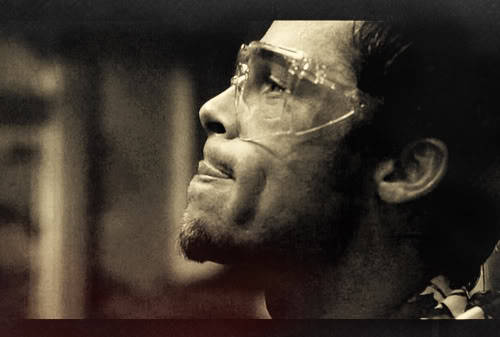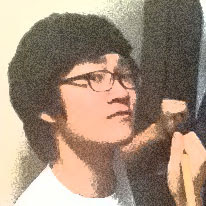Chapter
Four begins by stating that Mr. Croup and Mr. Vandemar live in a sub-cellar of
a forgotten Victorian hospital. Interestingly, early hospitals were seen as a gateway
to death because of poor conditions such as overcrowded rooms. Considering
this, I assumed the characters in London Below represent those who were ‘abandoned’
in modern society. This led me to a question; why don’t people in London Below
cooperate? London Below is not completely disconnected from the world above since
Illaster escaped from there. That means it is possible to return to London
Above. Since they all share the harshness of the real world, I expected them work
together to prove their existence and value to people in London Above, as a
form of a riot. Instead, the rat-speakers built their own society underground. Why
did they choose not to be seen by strangers like rats?
I
could find my answer to the question from Anesthesia. She was staying under an
overpass in Notting Hill, running away from violence of her aunt and her
husband. Notting Hill is an affluent area, but it is also a cold place that
shows no understanding for other people’s suffering, as can be seen in the
daunting description of the excerpt of ‘The Napoleon of Notting Hill’. If
people in Notting Hill were sympathetic enough to care about Anesthesia, she
would have not come down to London Below. However, people see in different
perspectives according to the situation they are in. For rich people with a
high social status, they do not understand nor feel the need to notice problems
the poor face every day. For example, when a politician Chung Mong-joon was
asked how much a bus fare is in 2008, he answered “70 won.” I wonder if people
in modern, materialized society are growing more selfish.
The
part where Croup answers a phone call was also interesting. He is cruel and kills
people together with Mr. Vandemar, but becomes a lamb when he is on the phone
with his employer. Actually, they are just taking orders and doing what their
boss ordered them to do. So, can we blame for what they do if they are
kind-hearted in nature, but only kill innocent people as an order? There are
times when people must do something even though it is against their will. A
soldier in a war is one example. He may not like the idea of taking away a
person’s life, but he has to kill enemies to win the battle and save his own
life. If Croup and Vandemar were ordered to make a donation to the homeless,
they would appear as generous characters. I thought understanding how authority
can change a person’s behavior would useful when making a decision as a member
of society.
Chapter
Five shows Richard in the Floating Market. He sees stuff being sold in the
market and thinks they are quite bizarre. From fresh nightmares, rubbish,
mended clothes to jewelry made from antique radios, they sell and buy things
that people in London Above would mostly find useless and have not much
interest in. In addition, it does not fit to the place the market is being
held, Harrods, an upmarket department store. I think there can be two ways to
think about this. First, it can be thought that what people want to possess and
value highly in these days is actually nothing. Products made by famous brands,
such as bags, shoes, and makeup accessories are not ‘efficient’. They are not
necessary in life and can be replaced with other cheaper and more efficient products.
The reason people want to purchase them, however, is because of the honor and attention
they will bring, not the utility. They want to raise their social status by
possessing those products, but it takes more than luxuries to gain true respect
from others.
From
a different perspective, it can be suggested that seemingly useless things are
in fact valuable in our lives. For example, an antique radio may have fewer
features than up-to-date ones, but it also contains properties and beauty that
modern products do not have. With rapid technological advances, we may forget the
value of things we already have in possession. However, old products had once
been cutting edge technologies and new products will become old in the future
as well. Everything holds its own value in its own way.
Richard
finding violence exhilarating was worth thinking about too. I feel people these
days are under too much pretenses to present a better image of themselves.
During that process, we are forced hide our emotions and change words since not
doing so would draw others’ attention and jeopardize our social positions. Politicians,
office workers, and even teachers are not exceptions. A society where people
are afraid to speak the truth deceives every member of it, and we should equip
ours with proper measures so that more whistle blowers can come up front.
In
chapter Six, the characters head to Islington to find an angel. This is funny since
there is a Tube station named Angel in Angel, Islington. We do not know if there
is an angel in Islington or if an angel really exists. However, we cannot disprove
an argument that an angel exists because we can only make assumptions. People
once believed that the Earth rotated around the sun. They also thought that all
matter consisted of water, fire, earth, and air. But both theories proved to be
false with advances in science. This suggests that knowledge we have about the
world we live in can be false because we do not know everything about it. For
example, it is possible that our lives are controlled and planned just like the
Truman show. Maybe emotions, relationships, history, and even family are
fabricated. Therefore, I believe we have to keep learning and suspecting what’s
around us because we may not be seeing something that clearly exists. We don’t
know what is there until we decide to look inside like Schrödinger’s cat, a
famous thought experiment, tells us. A complex mathematical equation means
nothing to a person with no knowledge in math while it can indicate the power
of an atomic bomb to an expert in the field. It’s the same with people in
London Below. There may be people out there who desperately need help from
London Above. It may be that they are sending signals for rescue but we are not
recognizing them. Thus, we should never stop asking questions because
everything can turn out to be false.












